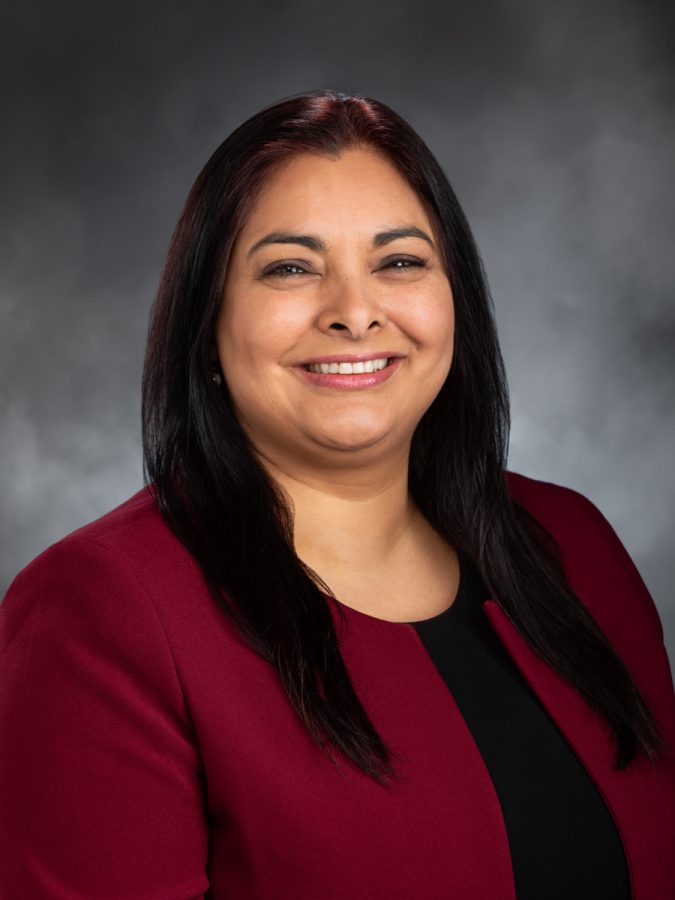New Senate Bill to create cold case unit for missing and murdered Indigenous women and people
Native American women are murdered at rates 9 greater than 10 times the national average.
COURTESY OF WASHINGTON STATE LSS
Sen. Manka Dhingra, D-45
January 26, 2023
Proposed legislation in the Washington State legislature would create a cold-case investigations unit through the Attorney General’s Office for missing and murdered Indigenous women and people.
Cold case units or squads are responsible for working unsolved homicides which may include reviewing key aspects of the case such as witnesses and evidence, according to the U.S. Department of Justice.
Senator Manka Dhingra, a sponsor of the bill, said that she has been aware of the issues of missing and murdered Indigenous women for multiple years.
“I became aware of missing and murdered Indigenous women issues six or seven years ago,” she said. “Prior to the legislature, I was senior deputy prosecuting attorney with King County. I’ve been a prosecutor since 2000 — this is something that I was aware of even in that capacity. And a lot of the issues at that time were about cross-jurisdictional issues.”
Because of jurisdictional issues, a lot of cases of missing and murdered Indigenous people get missed, so then it is hard to investigate and prosecute those cases, Dhingra said.
Cross-jurisdictional issues can have to do with living on tribal land and the differences in law between tribal and non-tribal lands, but they can also be broader than that, she said.
Tribal Law is important to Native Americans for multiple reasons, said Tommy Williams, Native American Retention Specialist at WSU and an enrolled member of the Nez Perce Tribe.
“Tribal Law is basically meant to protect our future as tribal leaders and tribal government as well as help uphold the treaty rights that were agreed upon. And also to hold the government and state accountable for what was agreed upon on our treaty rights,” Williams said.
Tribal Law has a dual task of both protecting the Native people and homelands while also holding outside activity accountable, he said, and the proposed legislation is a way to help implement that. Through tribal law and treaty rights, Native Americans are supposed to be protected by the federal government.
“A recent federal 8 study reported that Native American women are murdered at rates 9 greater than 10 times the national average. Many of these crimes, 10 however, are often unsolved or even unreported because there are also 11 very high rates of disappearance for Native American women,” according to Senate Bill 5137.
Williams said the main reason for this is that Native Americans are being overlooked.
“Many people, even in this community, fail to recognize that we are on the homelands of one of the most overlooked minorities in the whole country,” he said. “Native Americans are consistently overlooked for support and any social awareness case. So you know, whether it’s drugs and addiction, abuse everything that we try to have support for a lot of people it’s just the first time they’re hearing about it.”
Around the time that the murders took place at University of Idaho, Natalya Greene, an Indigenous girl from Pullman, went missing and no one knew about it, Williams said. The tribal realm had to use its efforts through social media and its own newsletters to get the word out. While the murders in Moscow were an important issue, the lack of media coverage shows how Native American people can be overlooked, he said.
Dhingra said that the issue of disparities in the cases of missing and murdered Indigenous women is both because of a lack of awareness and because marginalized communities often don’t have the resources to deal with crimes, which is why it is important for the states to step in and provide those resources.
The proposed legislation has bipartisan support, and “everyone” wants to address the issue, Dhingra said. The legislation depends on how much money the unit needs and ensuring the cold case unit is funded appropriately as well as making sure everyone is working together collaboratively to solve these crimes. Additionally, the practices of the unit, like traditional burial ceremonies, need to be culturally sensitive.
A lot of the infrastructure built around cultural competency was built last year, she said, and the next step is creating the cold-case unit. The funding would come directly out of state dollars and would establish six to seven full-time employees to do the work, Dhingra said.
“The Attorney General’s Office does have a criminal division that has been up and running. So, obviously, it takes time to hire good people. But I don’t anticipate this being something that will take a long time in getting started,” she said.
Besides raising awareness about missing and murdered Indigenous people, there are other ways WSU students can be allies to Native American students. It is important to accept Native American students and their cultural practices and allow them to go at their own pace of finding a home at WSU, Williams said.
Integration may be seen by Native students as a way to hide who they are, Williams said; instead, students should have no anticipation for non-white cultures and just accept people for who they are and gain awareness and empathy of Native students. Additionally, students can attend events hosted by Native American Programs.
Women are the future of Native American society, Williams said.
“We need to be able to have future generations and it starts with our women. So the more women we lose, the more enrolled tribal members we lose,” he said. “And so if we’re losing our people, this is kind of like a new form of genocide. It shouldn’t be our responsibility, but tribal people are the only people taking this as a great issue.”









